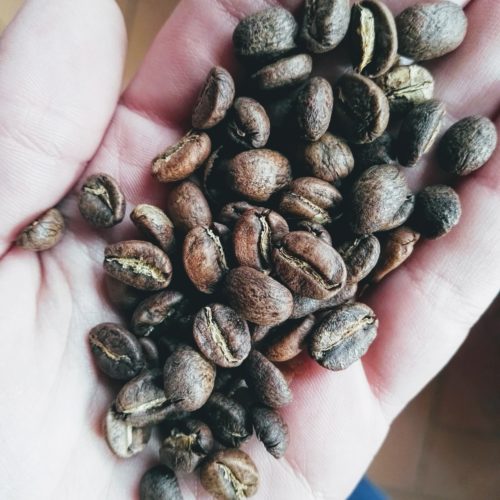
We all know that once you try Specialty Coffee, properly made, it's impossible to go back to drinking commercial coffee the same way you did before.
You enter a new world of different varieties and origins, and this world is vast and still unexplored. You start trying, searching for new things, making lists of coffee shops to visit and roasters to buy coffee from.
Specialty Coffee. Why do we choose it? Complex, delicate, interesting flavor—after all, thousands of combinations—origins, varieties, processes, different farms, different roasts. It's heaven for those who like to discover something new, in terms of flavors. To educate the palate. To gain new experiences.
But. There's a big BUT in this whole story. And I've mentioned it before. To represent everything it has, Specialty Coffee must be properly prepared.
While a commercial coffee is roasted almost to that coal stateWhen you can't tell the origin, and even if it's Arabica or Robusta, it doesn't matter how it's prepared later. It will have a foreboding flavor, and you'll get that flavor even if you do it wrong. The expected flavor, of course, is not the flavor of coffee, as many people still think, but the flavor of the roast itself, the flavor of the roasting.
Commercial coffee is roasted in such a way that it's irrelevant how it's prepared. Or rather, it's roasted to be prepared without any particular rules. You can try it once—try following the rules for preparing coffee with a commercial blend. Controlling everything, the water, the tamping, the dose… you'll be unable to make a decent cup. Commercial coffee is designed so that you can "just do it," without giving it much thought. Go into traditional cafes and see how espresso is prepared, from coffee beans ground 2-3 hours before, without measuring the dose, and using the tamper that comes with the grinder, if it's even tamped.
Specialty coffee is the exact opposite.
You need certain teams, precision and knowledge. AND coffee.
By the way, This is the reason why many coffee shops fail when they try to introduce Specialty into their menus.
Let's assume they have the right equipment, and they probably have the right coffee.
But there's a big problem in people's minds, to begin with. Years of watching people brew commercial coffee makes it hard to believe that you need to be knowledgeable when it comes to specialty coffee. And you need to have that knowledge. And you have to be precise. Measure ALL, ALL THE TIME.
Because commercial coffee basically tells you, “You don’t need to think about it too much, it’s easy, it’s just coffee.”
And Specialty Coffee says “measure everything.”
But measuring everything is difficult.
So many baristas don't do it.
So many coffee shops fail to serve specialty coffee for that reason.
There is an infinite difference between a well-extracted coffee and a coffee underextracted. And to not get that underextracted You have to know what you are doing in general, and what you have done, with that particular shot.
For me, it goes like this. I prefer a well-extracted specialty coffee. And then I prefer a commercial coffee. Saying that… With poorly made specialty coffee, you pay more, you get a barista who breaks the rules, and the coffee shop doesn't forgive them for that. But the person drinking that coffee, with all the mistakes made… is you.
And here comes the nightmare of every toaster, who is in some ways a perfectionist.
You have no control over how your coffee will be prepared after you sell it.
You choose the green coffee to buy, among other things. You find a roast profile for that coffee. You roast it. You sell it.
But after that… it's terra incognita. The most important thing—your customer's satisfaction—depends on how well they make their coffee. It depends on their education and their palate.
For example, if your customer makes filter coffee with an espresso grind, you're screwed. Or when they don't know how to adjust the espresso machine. Again. Or when they use a blade grinder. Or pre-ground coffee. Or when they use your coffee two months after the roasting date.
Education and knowledge are key to specialty coffee for that reason. Because unlike commercial coffee, there are certain rules and a certain level of precision that must be observed. Because "Good coffee doesn't come from nowhere." That's why you'll often hear people in specialty coffee talking about educating the customer. Because high-level satisfaction is deeply connected to knowledge.
I started writing about the despair of the specialty coffee roaster, but I'm going to end with another thought I just had.Perhaps the satisfaction of Specialty also comes from the fact that it's not easy? After all, as we all know, we begin to appreciate things much more when we understand how hard they are to do.